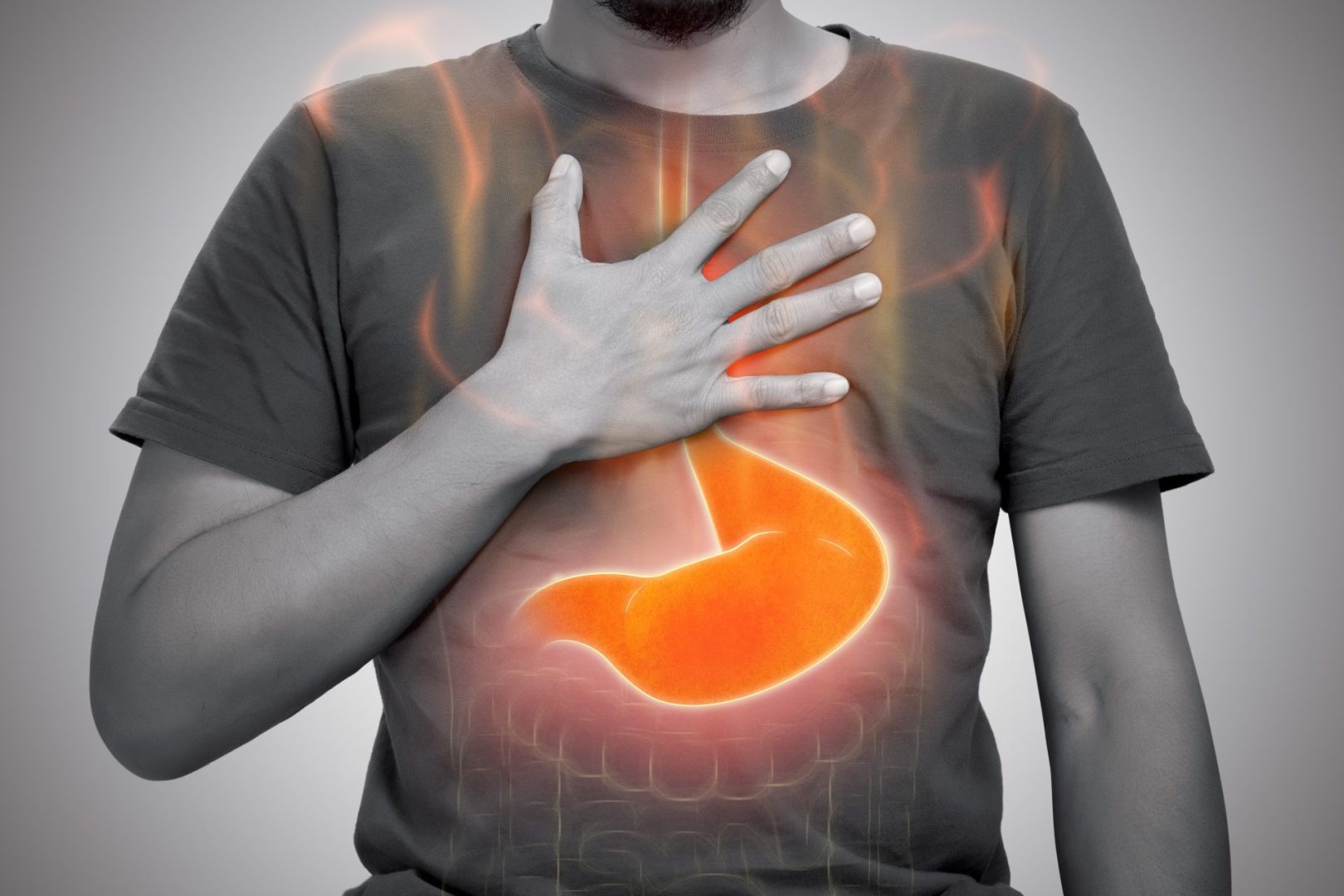Gastroesophageal reflux disease affects millions of people who rely on prescription antacids for relief, often unaware that natural methods can provide permanent solutions without medication dependence. These approaches address root causes rather than masking symptoms, creating lasting freedom from acid reflux discomfort.
The journey toward natural GERD relief begins with understanding why stomach acid escapes into the esophagus and how lifestyle modifications can restore proper digestive function. Rather than suppressing acid production, these methods optimize digestion while strengthening the mechanisms that prevent reflux.
Many people discover that their GERD symptoms stem from correctable lifestyle factors rather than requiring lifelong medication management. Simple changes in eating patterns, sleep positioning, stress levels, and food choices often eliminate symptoms completely within weeks.
Understanding the difference between treating symptoms and addressing causes provides the foundation for successful natural GERD management. While antacids neutralize existing acid, natural approaches prevent acid from reaching the esophagus in the first place.
The root cause approach
GERD typically develops when the lower esophageal sphincter becomes weakened or relaxes inappropriately, allowing stomach contents to flow backward into the esophagus. This malfunction often results from lifestyle factors that can be modified naturally.
Excess abdominal pressure frequently contributes to GERD by forcing stomach contents upward against the esophageal sphincter. This pressure can result from excess weight, tight clothing, poor posture, or eating habits that create unnecessary stomach distension.
Certain foods directly weaken the lower esophageal sphincter, making reflux more likely regardless of other factors. Identifying and eliminating these trigger foods often provides immediate relief while allowing the sphincter to regain proper function.
Stomach acid levels that are too low, rather than too high, can also cause GERD symptoms. Insufficient acid leads to poor digestion, bacterial overgrowth, and increased gas production that creates pressure and forces contents upward.
Dietary transformation strategies
Food choices significantly impact GERD symptoms, with certain modifications providing relief within days of implementation. These changes work by reducing inflammation, improving digestion, and eliminating foods that weaken the esophageal sphincter.
Eliminating common trigger foods helps identify personal sensitivities while reducing immediate symptoms. Common culprits include chocolate, mint, citrus fruits, tomatoes, onions, garlic, spicy foods, and fatty or fried items.
Alkaline foods help neutralize excess stomach acid naturally while providing nutrients that support digestive health. Bananas, melons, oatmeal, green vegetables, and lean proteins create an environment that discourages reflux while promoting healing.
Fermented foods introduce beneficial bacteria that improve digestion and reduce inflammation throughout the digestive tract. Sauerkraut, kimchi, kefir, and yogurt help restore bacterial balance while supporting optimal stomach acid production.
Anti-inflammatory foods help heal damaged esophageal tissue while reducing the inflammation that can worsen GERD symptoms. Ginger, turmeric, leafy greens, and omega-3 rich fish provide compounds that actively reduce digestive inflammation.
Eating pattern modifications
How and when food is consumed impacts GERD symptoms as much as food choices themselves. Strategic eating patterns can eliminate reflux episodes while supporting optimal digestive function throughout the day.
Smaller, more frequent meals reduce stomach distension and pressure that can force contents upward. Eating every 3-4 hours with moderate portion sizes maintains steady digestion without overwhelming the stomach’s capacity.
Thorough chewing becomes crucial for proper digestion and GERD prevention. Each bite should be chewed 20-30 times to ensure adequate enzyme mixing and reduce the digestive burden on the stomach.
Meal timing relative to sleep significantly affects nighttime GERD symptoms. Finishing the last meal at least 3-4 hours before bedtime allows complete stomach emptying and reduces the likelihood of reflux during sleep.
Liquid consumption timing helps prevent dilution of digestive enzymes while maintaining proper hydration. Drinking fluids between meals rather than during eating optimizes digestion while preventing excessive stomach volume.
Sleep and positioning solutions
Sleep position dramatically affects GERD symptoms, with simple adjustments often providing immediate relief for nighttime reflux episodes. These modifications use gravity to prevent stomach contents from reaching the esophagus.
Elevating the head of the bed by 6-8 inches creates an incline that keeps stomach acid in place throughout the night. This elevation should involve the entire upper body rather than just pillows, which can create harmful pressure points.
Left-side sleeping positions help reduce reflux episodes by positioning the stomach below the esophageal opening. This natural anatomical positioning makes it more difficult for acid to flow upward during sleep.
Avoiding late-night eating prevents active digestion during sleep when horizontal positioning makes reflux more likely. The stomach should be empty or nearly empty when lying down for extended periods.
Clothing choices during sleep should avoid anything that creates pressure around the midsection. Loose-fitting nightwear prevents additional abdominal pressure that could contribute to reflux episodes.
Natural acid regulation
Rather than suppressing stomach acid production, natural methods help optimize acid levels for proper digestion while preventing excess acid from causing problems. This balanced approach supports overall digestive health.
Apple cider vinegar, when used correctly, can help improve digestion and reduce GERD symptoms for some individuals. One tablespoon diluted in water before meals may enhance stomach acid function and improve food breakdown.
Digestive enzymes taken with meals can improve food breakdown and reduce the fermentation and gas production that contributes to reflux pressure. These supplements help compensate for reduced natural enzyme production.
Betaine hydrochloride supplements may help individuals with low stomach acid improve digestion and reduce GERD symptoms. This should be used carefully and discontinued if symptoms worsen, as it’s not appropriate for everyone.
Bitter herbs consumed before meals naturally stimulate digestive enzyme and acid production. Dandelion root, gentian, and artichoke leaf help optimize natural digestive processes without medication.
Stress management impact
Chronic stress significantly affects digestive function and can worsen GERD symptoms through multiple mechanisms. Managing stress levels often provides dramatic improvement in acid reflux symptoms.
The vagus nerve, which controls digestive function, becomes impaired under chronic stress, leading to poor stomach acid regulation and weakened esophageal sphincter function. Stress reduction helps restore proper nerve function.
Cortisol elevation from chronic stress increases inflammation throughout the digestive tract while affecting the production of protective mucus. Reducing stress allows healing while improving natural protective mechanisms.
Deep breathing exercises help activate the parasympathetic nervous system that controls digestion. Regular practice of diaphragmatic breathing can improve digestive function while reducing stress-related GERD symptoms.
Meditation and mindfulness practices help reduce overall stress levels while improving awareness of eating habits and trigger foods. This increased awareness supports better food choices and eating patterns.
Movement and posture benefits
Physical activity and proper posture significantly impact GERD symptoms by improving digestion, reducing abdominal pressure, and strengthening the muscles that support proper esophageal function.
Gentle exercise after meals, such as walking, helps promote digestion and prevents food from remaining in the stomach longer than necessary. This movement reduces fermentation and gas production that can create reflux pressure.
Core strengthening exercises help support proper posture and reduce abdominal pressure that contributes to GERD. Strong abdominal muscles provide better support for internal organs while improving overall digestive function.
Posture correction reduces compression of digestive organs while improving breathing patterns that affect digestion. Maintaining proper spinal alignment throughout the day supports optimal digestive function.
Avoiding vigorous exercise immediately after eating prevents the jarring movements that can force stomach contents upward. Waiting 2-3 hours after meals before intense physical activity helps prevent exercise-induced reflux.
Healing and repair nutrients
Certain nutrients specifically support esophageal healing and improve the integrity of the digestive tract lining. These nutrients help repair damage while preventing future GERD episodes.
Zinc helps maintain the integrity of mucous membranes throughout the digestive tract while supporting tissue repair. Food sources include pumpkin seeds, oysters, and grass-fed beef, or supplements can be used temporarily.
Vitamin D supports immune function and tissue healing throughout the body, including the digestive tract. Adequate levels help maintain proper gut barrier function while reducing inflammation.
L-glutamine provides fuel for intestinal cells and supports healing of damaged digestive tract lining. This amino acid can be particularly helpful for repairing esophageal tissue affected by acid exposure.
Omega-3 fatty acids reduce inflammation throughout the body while supporting tissue healing and proper immune function. Regular consumption of fatty fish or high-quality supplements provides these essential fats.
Hydration strategies
Proper hydration supports optimal digestive function while helping prevent GERD symptoms. Strategic water consumption timing and quality can significantly impact acid reflux episodes.
Room temperature water moves through the digestive system more efficiently than cold water, which can slow digestion and potentially worsen GERD symptoms. Avoiding ice-cold beverages helps maintain optimal digestive temperature.
Alkaline water may help neutralize excess stomach acid while providing proper hydration. Natural spring water or water with added minerals can support overall digestive health better than distilled water.
Herbal teas provide hydration along with therapeutic compounds that can help reduce GERD symptoms. Chamomile, marshmallow root, and slippery elm create soothing effects on irritated digestive tissues.
Timing water consumption to avoid diluting digestive enzymes helps maintain optimal digestion. Drinking larger amounts between meals and smaller sips during eating supports both hydration and proper digestion.
Environmental modifications
Physical environment changes can significantly impact GERD symptoms by reducing triggers and supporting behaviors that prevent acid reflux episodes.
Air quality improvements help reduce respiratory irritation that can worsen GERD symptoms. Using air purifiers, avoiding strong fragrances, and maintaining clean indoor air supports overall respiratory and digestive health.
Temperature control helps maintain comfort during sleep and prevents overheating that can worsen nighttime GERD symptoms. Cool, comfortable sleeping environments support better rest and reduced reflux episodes.
Reducing exposure to cigarette smoke, whether personal smoking or secondhand exposure, dramatically improves GERD symptoms. Smoke irritates the respiratory tract and weakens the lower esophageal sphincter.
Creating calm eating environments supports proper digestion by reducing stress during meals. Quiet, comfortable dining areas help activate the parasympathetic nervous system needed for optimal digestive function.
Long-term success strategies
Permanent GERD relief requires sustainable lifestyle changes rather than temporary modifications. Building lasting habits ensures continued freedom from acid reflux symptoms without medication dependence.
Gradual implementation of changes helps ensure sustainability while allowing the body time to adapt. Making too many changes simultaneously often leads to abandoning the approach before benefits become apparent.
Regular monitoring of symptoms helps identify which modifications provide the most benefit while allowing for personalization of the approach. Keeping a simple journal can reveal patterns and trigger foods.
Flexibility within the framework allows for social situations and occasional indulgences without completely derailing progress. Having strategies for managing occasional trigger foods helps maintain long-term success.
Building a support system of family members and friends who understand the approach helps maintain consistency while providing encouragement during challenging periods.
The natural approach to GERD relief offers permanent solutions without the side effects and dependency associated with prescription antacids. By addressing root causes through comprehensive lifestyle modifications, individuals can achieve lasting freedom from acid reflux symptoms while improving overall digestive health. This method requires patience and consistency but provides sustainable results that improve quality of life without ongoing medication requirements.














